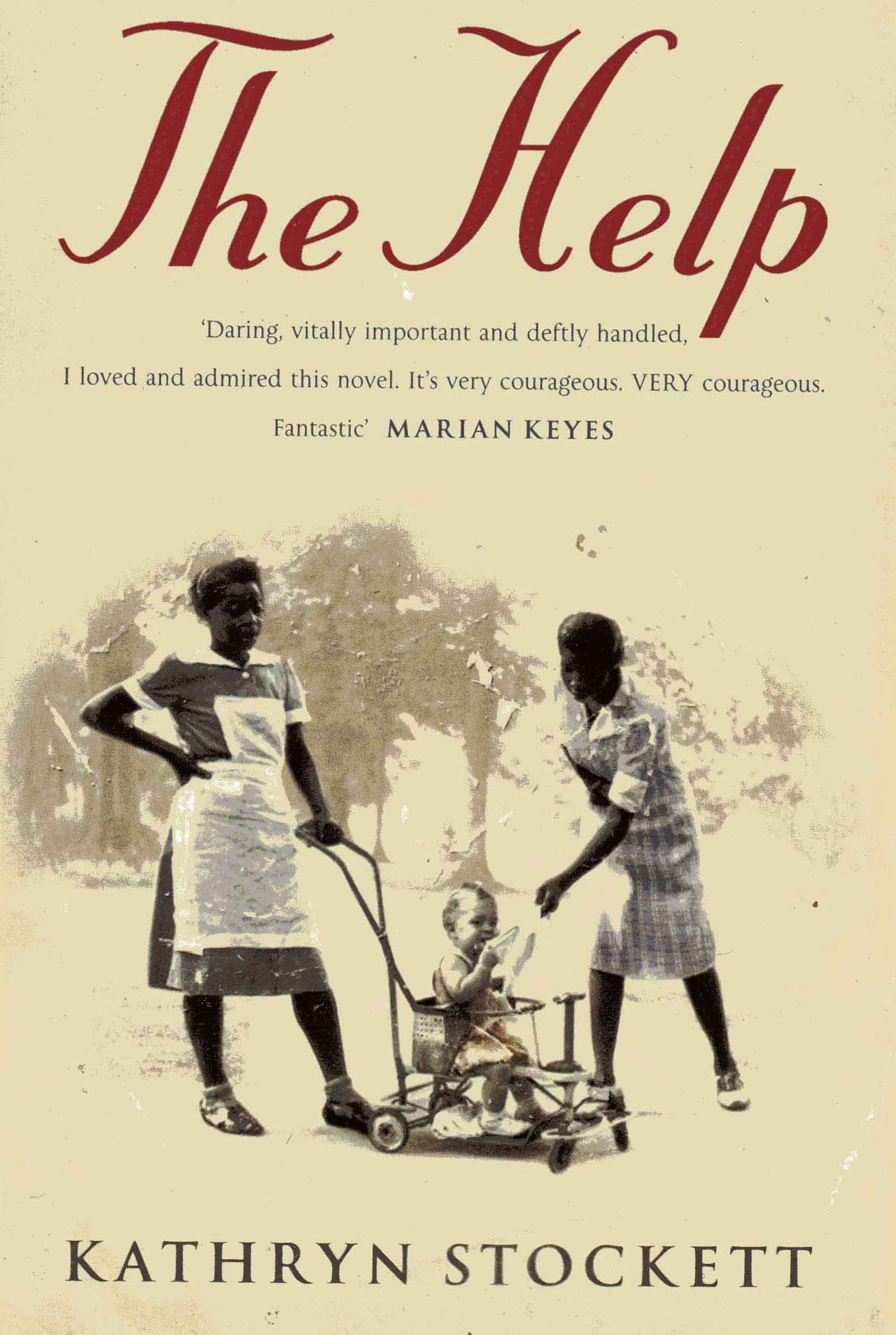The Help shot to fame after its 2009 release, becoming one of those "must-read" novels on everyone's book club list. After the novel rocketed up the bestseller list, the subsequent film became a surprising blockbuster. In either medium, the story is fantastic...but if you've only experienced one version, you're missing an awful lot.
The Book
Kathryn Stockett wrote her debut novel
The Help just a few years ago, but the book takes place in entirety in the 1960s in Jackson, Mississippi. She wrote the book for 5 years and got rejected by more than 50 agents before finding someone to represent her. It was on the
New York Times bestseller list for more than 100 weeks.

Primarily, the story is told through the eyes of Aibileen, Minny and Skeeter. Aibileen is a maid of African-American descent who cleans house and cares for the children of white families. She is currently working for the Leefolts, her first job after the death of her son. Aibileen keeps the Leefolt house and cares for their young daughter Mae Mobley. Minny is Aibileen's closest friend who has trouble keeping a job -- she's been fired from 19 of them. She worked recently for Hillly Holbrook's mother, Mrs. Walters. Hilly is known to one and all; she's the head of the Junior League and the de factor social leader of the community.
Skeeter, whose name is actually Eugenia Phelan, grew up on a successful cotton farm. She's returned home from college with ambitions to become a writer, though her mother hopes Skeeter will marry. Upon returning home, Skeeter finds that the maid who raised her, Constantine, has mysteriously departed. No one will tell her what has happened.
It gets her to thinking about what it's like to be an African-American maid in Mississippi, and she starts asking questions. For the first time, Skeeter is paying attention to how other white families treat their maids. But the maids are reluctant to talk to Skeeter about their working lives in any way, until one of them reaches a breaking point. Aibileen and Minny eventually open up to Skeeter, and the book is created.
In many novels, this is where the story would end. This is not the case with
The Help. In this book, the reader gets to see the ramifications of Skeeter's efforts. The results are pretty hilarious, and touching.
The Film
The big screen version of
The Help came to theaters in 2011 and made a huge splash. Awards were passed out and hype was everywhere, for good reason: it's a darned good movie. Skeeter is played by Emma Stone on film, a casting decision that some lovers of the book have criticized. Stone did a wonderful job as the young, would-be journalist, but she is very petite with a slender 5-foot-4 frame. In the book, Skeeter is a big woman. Bryce Dallas Howard wonderfully portrays bitchy Hilly Holbrook, and Octavia Spencer earned an Oscar for her turn as Minny Jackson.

Skeeter initially approaches Aibileen for help with her "homemaker hints" column, the only writing job she's landed. But the more time Skeeter spends with Aibileen, the more she sees the deplorable way Hilly Holbrook and others treat "the help" in their household. After Minny is fired from the Holbrook household, Aibileen helps her find a job working for Celia Foote (played by Jessica Chastain in a highly-praised performance). Still, Aibileen and Minny are the only two willing to share stories with Skeeter. The New York publisher that Skeeter is speaking to urges her to get stories from more maids, and to do it quickly before the Civil Rights "fad" passes.
When Civil Rights leader Medgar Evers is killed in Jackson and Hilly's maid is subsequently arrested, the other maids start to come forward. Minny tells Skeeter her most secret story, the "Terrible Awful," to make certain none of the white families will admit to having any involvement with the book. Skeeter also learns the truth about Constantine at long last. The book is released, and becomes a huge success, though it does ruffle a few feathers.
The story ends happily enough, as happily as it possibly could. The Civil Rights Act did make things a little better for African-Americans in the United States, and the women's movement made things better for African-American women in particular, but the world would wait 50 years before an African-American landed the highest job in the land.
What Got Adapted?
The movie understandably glosses over some of the harder facts that are openly shared in the book. At the top of the movie, Aibileen mentions that she has raised 17 children for white folks. In the book, we understand that she eventually left them all because they all broke her heart. Though she loved them, these white children she raised learned how to be racists at the knees of their parents...and all began to see Aibileen as something less than them.
Minny's last scene with Celia Foote has been changed considerably on film. Celia, who has been trying to learn how to cook from Minny for months, has prepared a gigantic meal for Minny to tell her that she may always work in her household. In the book, Celia doesn't learn how to cook or to clean and really can't do much of anything useful. She does promise Minny a lifelong job, more or less, telling her that Hilly can't get her fired from this household...but Celia doesn't have a lot of options, either.
Skeeter's mother is also softened for the film. In the movie it is discovered that she has fired Constantine because of some embarrassing behavior committed by Constantine's daughter during a meeting of white society women. On film, Charlotte Phelan's public embarrassment more or less forces her to banish Constantine from the house.
What actually happens is this: Constantine's daughter Rachel is half-white by virtue of the fact that Constantine was raped by a white man before she came to work with the Phelans. Charlotte doesn't even know Rachel exists until the girl turns up at the society meeting applying for membership to the club. Charlotte learns that Rachel is actually Constantine's daughter, and in her eyes the girl is infiltrating white society. This is why Constantine is fired, and Charlotte never feels sorry about it. Rachel's offense is just too great.
Smaller changes are made on film that defeat the message and realism of the book. Skeeter and Aibileen sit at a table together in one scene, for example. This would not happen in reality, and did not happen in the book.
The violence of the times is greatly softened. In the film, Skeeter's book is scandalous. Writing such a book was potentially fatal, however. Sympathetic whites were hanged and killed in the deep south as surely as blacks who fought for Civil Rights.
The ending is also changed on film, something that causes many critics to cringe. You'll have to familiarize yourself with both versions to find out how the ending was changed! The Help is definitely worth the time to read and to watch, so don't miss either version.




























